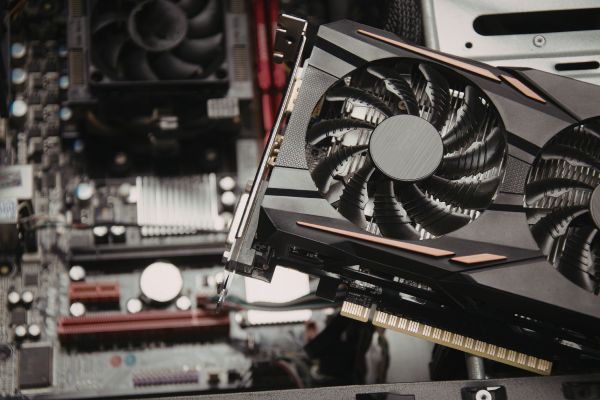In today’s fast-paced world, computer systems technology stands at the forefront of innovation. It’s the backbone of modern industry, driving everything from communications to healthcare, manufacturing, and beyond. Without it, our digital lives would cease to function. But what exactly does “computer systems technology” mean, and how does it shape our everyday experience?
This article dives deep into the concept of computer systems technology, highlighting its importance, exploring its components, and offering insight into why understanding this field is crucial for both businesses and individuals.
What is Computer Systems Technology?
Simply put, computer systems technology refers to the integration of hardware, software, and network systems that allow computers to function and interact with each other. It’s a vast domain that encompasses everything from the microprocessors powering our devices to the cloud-based services that store our data. Whether you’re checking an email or streaming your favorite TV show, you’re relying on the intricate dance of this technology to make it all possible.
In today’s world, where digital transformation is the buzzword, computer systems technology is the driving force behind this shift. Businesses leverage these systems to streamline operations, improve efficiency, and stay ahead of the competition. But, more importantly, this technology enhances user experience, offering seamless connectivity and unparalleled access to information.
Components of Computer Systems Technology
1. Hardware
When most people think of computers, they imagine hardware. Hardware refers to the physical components of a computer system – think of the monitor, keyboard, mouse, CPU, and motherboard. But it doesn’t stop there. Devices like smartphones, servers, and networking equipment also fall under this umbrella.
Key Hardware Components:
- Central Processing Unit (CPU): Often called the “brain” of the computer, the CPU is responsible for executing instructions and processing data.
- Random Access Memory (RAM): This temporary memory allows a computer to store and access data quickly.
- Storage Devices: Whether it’s an SSD, HDD, or cloud storage, these devices store all the information and files needed to run applications and systems.
2. Software
Hardware alone is useless without software, which provides instructions for how a system should function. Software includes operating systems (like Windows, macOS, or Linux) and applications (like Microsoft Word or Google Chrome).
Types of Software:
- System Software: Controls the basic functions of a computer, like the OS.
- Application Software: These are the programs we use daily, such as word processors or web browsers.
3. Networking
In today’s interconnected world, computer systems don’t operate in isolation. Networking allows computers to communicate, share resources, and access the internet. Whether you’re working on a local area network (LAN) at the office or accessing the cloud from your home, networking is crucial.
Networking Essentials:
- Routers and Switches: These devices direct data to where it needs to go.
- Protocols: These are the rules and standards that allow different devices to communicate with each other, such as TCP/IP.
Why is Computer Systems Technology Important?
It’s no secret that we’re living in a digital age, but just how dependent have we become on computer systems technology? From a business perspective, the answer is crystal clear: very dependent. Companies across industries rely on these systems to maintain competitive advantage, whether through data analytics, automation, or simply streamlining their daily operations.
But it’s not just about businesses. For everyday users, computer systems technology shapes how we live our lives. Want to video chat with your friend across the globe? That’s computer systems technology in action. Need to store terabytes of data for a massive project? You guessed it – computer systems technology makes it happen.
Moreover, emerging technologies like artificial intelligence, machine learning, and IoT (Internet of Things) are all branches of computer systems technology. As these fields advance, the role of computer systems technology becomes even more vital, pushing innovation to heights we’ve only dreamed of.
Applications of Computer Systems Technology in Different Industries
1. Healthcare
Medical professionals rely on computer systems technology for everything from storing patient records to operating advanced diagnostic tools. Telemedicine, electronic health records (EHR), and even robotic surgeries are all made possible through advancements in this field.
2. Finance
Ever wonder how online banking or stock trading is so seamless? That’s thanks to sophisticated computer systems. In finance, speed is everything, and systems technology ensures real-time transactions and data processing.
3. Manufacturing
The assembly lines of yesteryear have been replaced by automated systems that can perform complex tasks with precision and efficiency. Through robotics, sensors, and computer systems technology, modern manufacturing has undergone a complete transformation.
4. Education
With the rise of e-learning platforms, education has become more accessible than ever before. Students can attend classes from the comfort of their homes, submit assignments online, and even collaborate on projects with peers across the globe – all thanks to computer systems technology.
Emerging Trends in Computer Systems Technology
The field of computer systems technology is always evolving, and keeping up with the trends is essential for anyone looking to stay ahead of the curve. So, what’s on the horizon?
1. Artificial Intelligence (AI) and Machine Learning (ML)
AI and ML are transforming industries by allowing computers to make decisions and predictions based on data. From self-driving cars to personalized marketing, these technologies rely heavily on advanced computer systems.
2. Edge Computing
While cloud computing has been a dominant trend for years, edge computing is gaining ground. It processes data closer to the source, reducing latency and improving speed – crucial for IoT devices and real-time applications.
3. Quantum Computing
Though still in its infancy, quantum computing promises to revolutionize the world by solving problems that are currently beyond the reach of classical computers. Industries like pharmaceuticals, finance, and cryptography are watching this space closely.
FAQs about Computer Systems Technology
- What exactly is computer systems technology?
Computer systems technology refers to the combination of hardware, software, and networking systems that allow computers to function and interact with each other. - Why is computer systems technology so important?
It’s crucial because it underpins almost every modern industry, from healthcare and finance to manufacturing and education, enhancing efficiency and connectivity. - What are the key components of computer systems technology?
The primary components are hardware (e.g., CPUs, storage), software (e.g., operating systems, applications), and networking (e.g., routers, protocols). - How is AI connected to computer systems technology?
AI relies on advanced computer systems to process vast amounts of data and make decisions, often enhancing the capabilities of traditional systems.
Conclusion
In a world where technology is evolving at lightning speed, understanding computer systems technology is more important than ever. Whether you’re a business leader looking to stay competitive or a tech enthusiast fascinated by the latest trends, this field offers endless possibilities. From hardware to software, networking to emerging technologies, computer systems technology is the engine that drives our modern lives.
As we look to the future, the advancements in this field will continue to shape industries, create new opportunities, and unlock innovative solutions to global challenges. The question is: are you ready to embrace the power of computer systems technology?
Authoritative Links
- https://www.ibm.com/it-infrastructure
- https://www.cisco.com
- https://www.microsoft.com/en-us/tech



